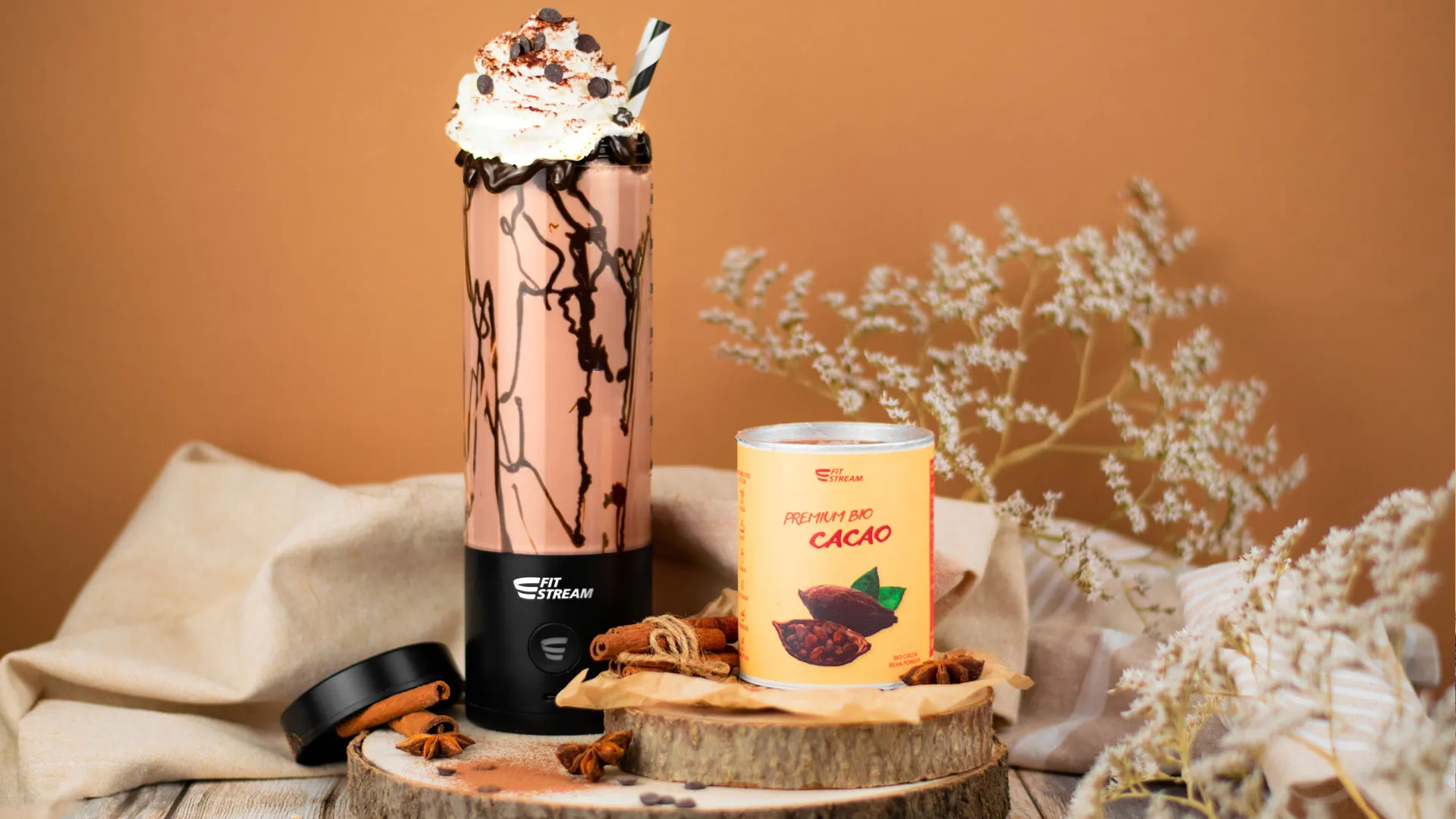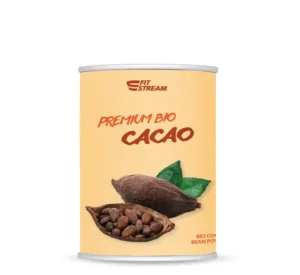A little bit of history
Cocoa is most commonly used in the form of concentrated cocoa bean powder. The first signs of cocoa use date back 5 000 years. The cocoa plant was probably domesticated in the upper Amazon and subsequently spread northwards. It was cultivated 3 000 years ago by the Aztecs and Mayans and the cocoa bean was used in beverages but also as currency.
Cocoa and its health benefits
Cocoa hides a great power that comes from its antioxidant activity, thanks to its many active substances. Cocoa is rich in micronutrients, polyphenols and flavonoids, which are powerful antioxidants. They are very important in fighting the load of free radicals that we take into the body every day. To maintain internal balance, our body must neutralize these free radicals with antioxidants. Eating foods high in antioxidants can also help us a lot in this regard.
The substances that are present in cocoa have very many positive effects on our health, let's describe some of them. They are very effective in improving the lipid profile (LDL, HDL cholesterol), they help to normalize glycemia (blood sugar), they help to lower blood pressure and thanks to their antioxidant activity they help to reduce inflammation in the body. It is all of these abilities that make cacao a really great health benefit. The active ingredients in cocoa also help to improve blood circulation in the body. The more cocoa is processed, the less of these active substances with beneficial effects it contains. That is why I recommend choosing cocoa that is not alkalized and is of the highest quality.
Research suggests that flavonoids, which are also present in cocoa, may promote neuron formation, improve brain function and improve blood flow. This is why cocoa, thanks to these substances, can play a role in the prevention of age-related brain degeneration, such as Alzheimer's disease.
Cacao also has positive effects on mood and can even reduce symptoms of depression, but further research is needed to confirm these effects. For now, it is in the realm of hypothesis.
Nutritional values of cocoa
Cocoa will also replenish the minerals calcium, copper, iron, manganese, magnesium, phosphorus, potassium and zinc. It also contains small amounts of B vitamins, vitamin E. In terms of energy and nutrients, cocoa will provide you with 438 kcal per 100 grams (we use about 7-20 grams of cocoa in a cocoa drink), 20 grams of protein, 58 grams of carbohydrates, including 37 grams of fibre, which is very beneficial for the gut microbiome. Of the total carbohydrates, it contains only 1.8 grams of sugar. In commercially available confectionery, apart from a small amount of cocoa, sugar and fat are mainly added for flavour. Therefore, confectionery is not the best source of cocoa. Cocoa contains 14 grams of fat of which 8 grams are saturated fat (source:https://tools.myfooddata.com/nutrition-facts/169593/100g). According to some sources, the composition varies, so I recommend following the manufacturer's information: (http://www.pbd-online.sk/#).
Cocoa vs. coffee
Cocoa contains the substance theobromine, which has a stimulant effect similar to caffeine, but with a much milder effect. Therefore, if caffeine is causing you health problems in the form of heart palpitations, try cocoa, which provides a gradual release of energy. However, be careful not to combine it with caffeine in bulk. Also be careful with children. Of course it depends on your individual tolerance.
Storage of cocoa
I recommend storing the cocoa in a dark container, in a dry place at room temperature.
When and what to watch out for with cocoa?
If you have problems with kidney stones, I recommend avoiding regular consumption of cocoa, due to its higher oxalate content. I do not recommend eating chocolate confectionery on a regular basis as a source of cocoa because of its positive effects on health. You will not really reap the benefits of cocoa from such sources, because it is present in really small quantities, often of low quality, and there is a high sugar and fat content in these products, which can lead to health problems when consumed regularly.
Conclusion
It is nutritious and easy to add to your diet in creative ways. However, to maximise the health benefits, make sure you use unalkalised cocoa powder or dark chocolate containing more than 70% cocoa. Prepare the cocoa to taste, even with cow's milk or a plant-based drink. Sweeten your cocoa with a little sugar or honey and enjoy it during the day, ideally skipping the evening.
Try our Premium Bio Cacaothat you can enjoy every day, thanks to its versatile use, not only in your kitchen, but also anywhere on the go. Thanks to FitStream blender you can even blend this cocoa powder at any time, for example during sports activities or sip your favourite drink on the way to work. It's a great nutritional supplement to get all the antioxidants you need into your body in a tasty way.






